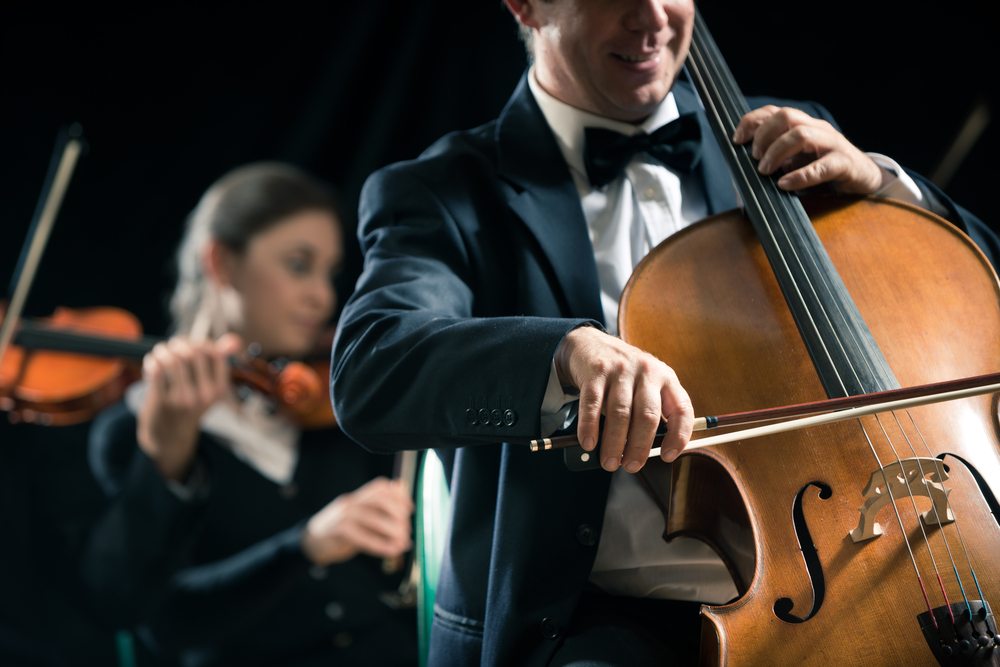
–The Musician’s Way, p. 180
To make our best music, we performers need to be mentally, physically, and emotionally in sync. In a word: centered.
Then, assuming that we’ve learned our material deeply, we can trust in our preparation and connect with our audiences.
In fact, centered musicians often captivate their listeners from the moment they step on stage because their powerful demeanor generates an expectant energy.
“To make our best music, we performers need to be mentally, physically, and emotionally in sync. In a word: centered.”
What’s the key to being centered under the spotlights? Habitually being centered in practice.
Centering for Musicians
Here’s a 4-phase approach to centering suited to the practice studio, concert stage, and any situation: 1. Release; 2. Breathe; 3. Affirm; 4. Focus.
“Centered musicians often captivate their listeners from the moment they step on stage because their powerful demeanor generates an expectant energy.”
1. Release
Sitting or standing:
• Balance supply on your sitting bones or feet.
• Let go of any tension in your shoulders and arms.
• Allow your spine to lengthen.
• Let your head “float” freely on your neck.
(see “Balanced Sitting and Standing” on p. 250-257 of The Musician’s Way).
Lying down:
• When you’re highly tense, you might opt to center lying down.
• Use either the Constructive Rest or Total Rest positions shown on p. 80-81 of The Musician’s Way.
• Release all tension and let yourself melt into the floor.
2. Breathe
• Lower your gaze; close your eyes if you wish.
• Inhale through your nose and deeply into your abdomen
• Exhale through either your nose or gently pursed lips (maybe do 2-to-1 breathing)
• Repeat
3. Affirm
Mentally or out loud, utter a positive statement that captures your intention; group members could affirm together.
• “I’m grateful to be able to make music.”
• “I’m ready: this is going to be fun.”
• “Let’s make some music!”
4. Focus
Wholeheartedly direct your attention to the task at hand:
• In practice, think about and then act on your practice goals.
• Backstage, mentally review some opening phrases and get into character.
• Onstage, before launching a piece, mentally image the opening phrase, and then set the air vibrating
with music.
Bear in mind that centering can be either calming or energizing.
Band members preparing for a stage show, let’s say, could ratchet up their energy by moving rhythmically as they center. Conversely, a harried musician who’s about to practice or audition alone might center peacefully to restore inner harmony.
“What’s the key to being centered under the spotlights? Habitually being centered in practice.”
After you’re accustomed to centering, experiment with doing so in a single breath: release, breathe, and affirm in unison, and condense your affirmations.
The above examples could be reduced to: a. “Thank you.” b. “Ready.” c. “Music!”
Related posts
2-to-1 breathing
Awareness, focus, concentration
Mastering performance skills
The power of specific goals
The concept of centering, as I use it here, is adapted from the writings of sports psychologists Robert Nideffer and Don Greene with additional influences from the Alexander technique and yoga traditions.
© 2010 Gerald Klickstein
Photo licensed from Shutterstock.com

Thanks, Noa – great examples.
You’re so right about how naturalness on stage arises from persistent, smart practice. Which means that all aspiring musicians can become soulful performers, if they choose accessible material & are willing to do the requisite work.
Gerald,
Glad to see the concept of centering make an appearance on the blog. And I think you hit the nail right on the head with this key statement:
“What’s the key to being centered under the spotlights? Habitually being centered in practice.”
I’ve become fascinated recently with Steve Jobs’ presentation style (he’s legendary for his very natural and compelling on-stage manner). Seems that his secret is lots and lots of preparation and rehearsal. I’ve heard similar stories for Penn & Teller and Chris Rock.
What seems natural, effortless, and spontaneous is actually the result of lots and lots of practice in performance-like conditions (and plenty of practice room preparation too, of course).